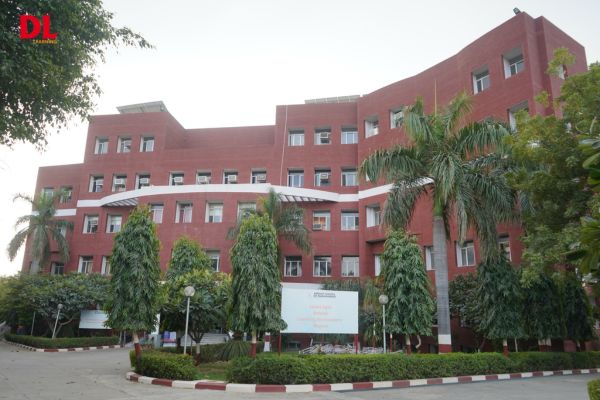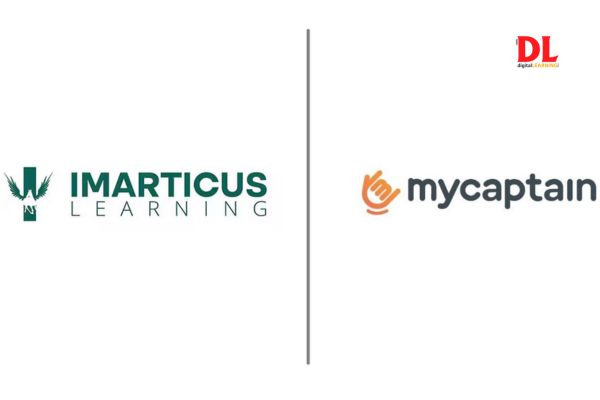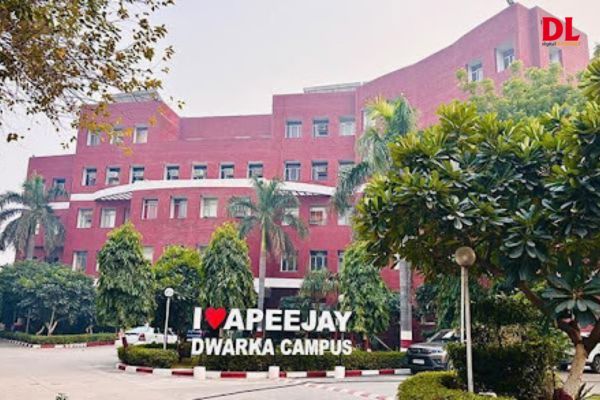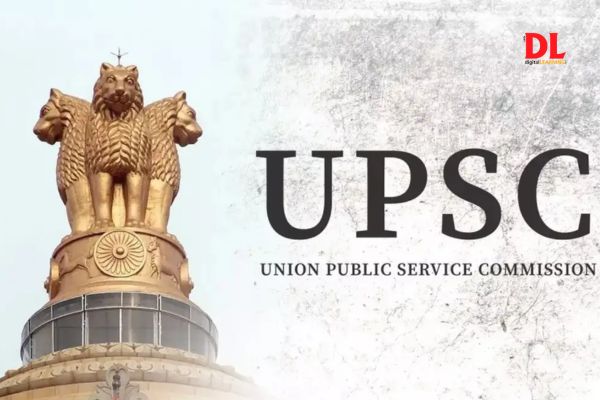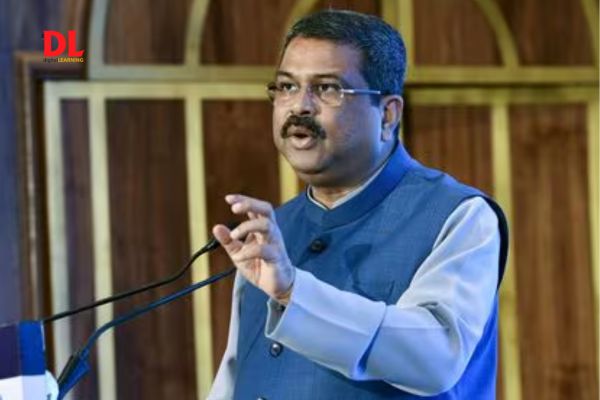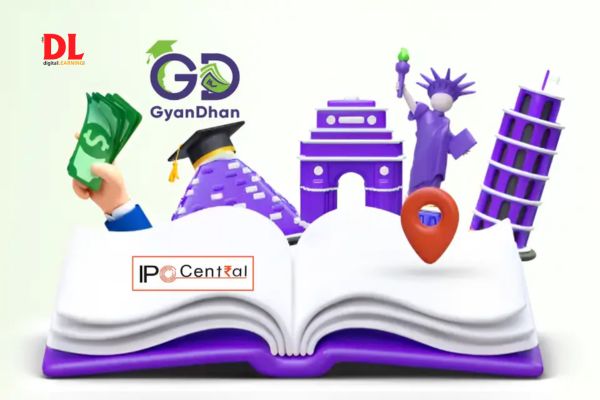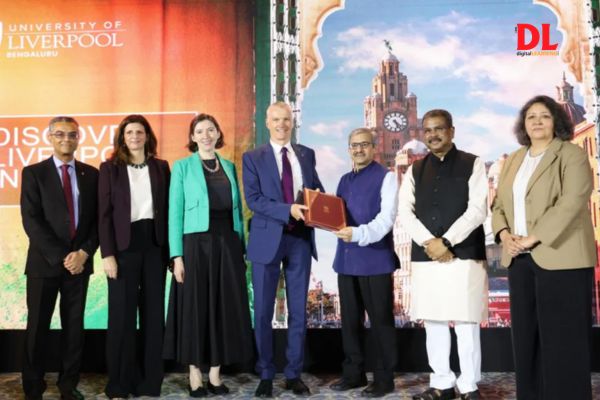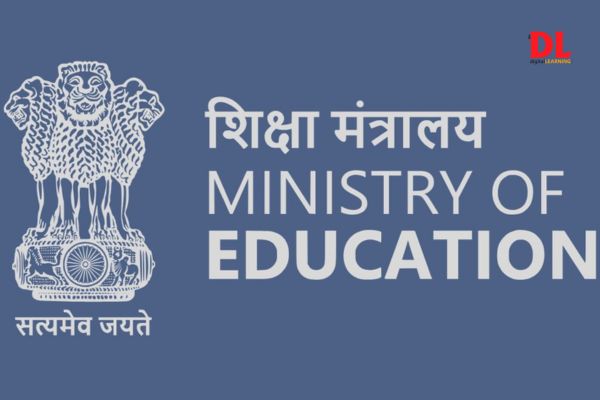In a world driven by narratives, visuals, and digital conversations, Apeejay Institute of Mass Communication (AIMC), Dwarka, New Delhi stands as a beacon of excellence, shaping the next generation of storytellers, journalists, and media visionaries. For over two decades, AIMC has not only kept pace with the media revolution but has often been ahead of the curve, setting standards that others aspire to match.
Recognised Among the Best Mass Communication Colleges in India
Consistently ranked No. 1 in Delhi for five consecutive years, AIMC has earned its place among the best mass communication colleges in India. From winning the Platinum Icon Award to being conferred with the Best Media Institute in North India. AIMC’s excellence is consistently recognised by top educational institutions and media surveys.
These accolades are not merely rankings — they are a reflection of AIMC’s deep industry engagement, robust academic vision, and unwavering commitment to student success.
Founded on Vision, Grown with Purpose
Established in 2003 under the visionary leadership of Mrs. Sushma Paul Berlia, Chairman, Apeejay Education, AIMC was conceived as more than an institute — it was designed to be a catalyst for transformation. Today, AIMC is synonymous with credibility, career-readiness, and cutting-edge pedagogy in the media landscape.
Curriculum That Mirrors Industry, Shapes Leaders

AIMC’s programs aren’t theoretical ivory towers. Every course is crafted with precision to mirror the realities of the media industry — from the newsroom and the edit bay to campaign strategy and content innovation. Whether it’s journalism, advertising, PR, digital media, content creation, or television production, AIMC offers an ecosystem where students learn by doing, thinking, failing, and rising — much like the real world they’re preparing to enter.
Industry-relevant tools such as Adobe Creative Suite, Final Cut Pro, Mac Studios, and drone-based visual storytelling are integrated into the learning experience from day one. Niche subjects like OTT Management, Data Management and Backpack Journalism are included in the curriculum and teaching practices.
Faculty That Inspires, Mentors That Guide
The real hallmark of AIMC lies in its human capital. Led by Director Prof. Sajal Mukherjee, an acclaimed media strategist and academician, the faculty includes some of the finest minds from journalism, filmmaking, public relations, digital content, and brand communications. These are mentors who bring industry intensity into classrooms and prepare students not just for jobs, but for leadership roles.
Proven Placement Success
AIMC’s alumni speak for themselves. From leading newsrooms to global communication giants, AIMC graduates are driving change and commanding respect. This robust placement record is not by accident — it’s the outcome of rigorous training, professional mentoring, and real-world readiness.
Flagship Initiatives Shaping Future Media Leaders

AIMC’s emphasis on experiential learning is reflected in its hallmark courses and events. The 21-day Industry cum Academic Orientation familiarizes students with the ground realities of the media world through interactions with media professionals, thinkers and leaders. The International We Care Film Festival, organized in association with UNESCO and the UN Information Centre, is dedicated to disability rights and inclusion. Media Chaupal, Brand Culture Gully, Meet the Author, and Meet the Filmmaker are some of the events that give students different spaces to interact with issues of the real world, creativity, and inter-disciplinary thinking. Special Lecture Series and the in-house journal AIMC Byline further endorse AIMC as a complete media education campus. These initiatives help develop critical thinking and an independent thought process amongst students, making them highly skilled and emotionally intelligent media professionals
Infrastructure That Powers Ideas
AIMC differentiates itself from most others due to its unparalleled infrastructure. The institute boasts a High Definition Television Studio set up for multi-camera shoots, a fully equipped Radio Studio, and Photography Studio. A Press Room dedicated to the craft of press conferences, Video Editing suites, and Advertising Labs that house Adobe Creative Suite that make the students proficient with state-of-the-art tools. The institute also has a Drone and Mac Studios. Smart classrooms, large amphitheater, 500-seater auditorium, and state-of-the-art conference hall provide the backdrop for a thriving learning environment. The24*7 digital library boasts an invaluable collection of audio-visual materials, journals and national and international authors.
A Launchpad for the Visionaries of Tomorrow
If you aspire to shape public discourse, influence opinion, create content that moves minds, and build a career that resonates across platforms — AIMC is where it begins. As one of the best mass communication colleges in India, AIMC combines academic depth with practical breadth, creating graduates who are ready for everything the modern media world demands — and more.
Admissions Now Open
Take the first step towards a fulfilling and future-proof career in media. Visit www.apeejay.edu/aimc or call +91-9910-222-777.
Be curious. Be creative. Be AIMC.
Where voices rise, and stories begin.








